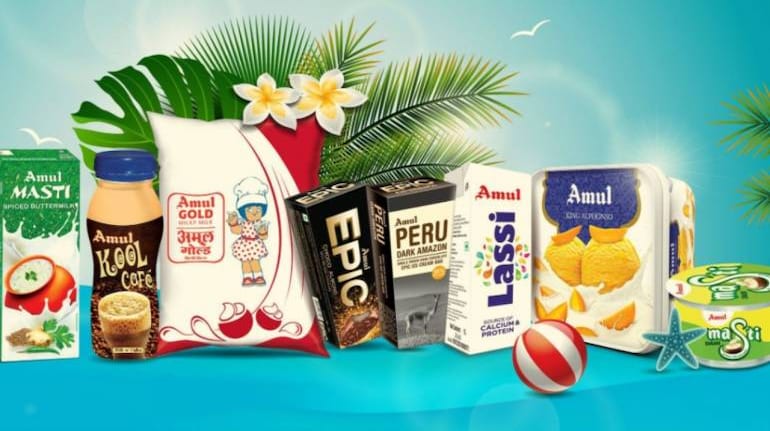



The first four months of FY21 has been a dream for Amul. The dairy major launched 33 new products, the highest number of products launched in a quarter. Gujarat Co-operative Milk Marketing Federation, which markets its products under the brand Amul, clocked revenues of Rs 38,550 crore in FY20. Estimates indicate that Amul products are consumed by a billion consumers daily.
Its wide distributor network comprising 10,000 distributors and a million retailers ensured that Amul products reached a large part of the country despite the lockdown. Taking advantage of its robust supply chain and distribution channel, Amul pushed not only its core dairy products but also its FMCG products into the market.
"In our locality, there was a severe shortage of biscuits in the lockdown. The only biscuits available were Amul butter cookies and chocolate chip cookies," said Vidhi Shah, a consumer from South Mumbai.
Track this LIVE blog for updates on the coronavirus outbreak
During the March to June period, Amul saw a 30 percent growth in its cheese category. "This growth was despite orders from the HORECA segment falling to almost zero," said RS Sodhi, managing director, Amul, adding that the HORECA (Hotel Restaurants and Catering) segment accounts for 35 percent revenues for the cheese category.
The chocolate category, too, saw exponential growth. Amul, which usually sees the highest sales for the segment in December-January, saw high sales for the chocolate category in the May-June period.
The last four months haven't been easy for FMCG companies. Demand outpaced supply in the initial weeks of the lockdown and logistical challenges added to the troubles. But even as FMCG companies continued to scale up production of every-day use products that were high in demand during the lockdown, they also realised that the trend of in-home consumption was here to stay.
Quick-fix meals, packaged foods and ready to eat products saw a huge spurt in demand during the lockdown. Taking into account these growth trends and consumption patterns, Amul decided to re-assess its product launch pipeline. Amul, which usually launches 10-12 products every quarter, decided to triple the number the products reaching the market. Launches in the last few months included immunity beverages like 'Haldi Doodh' and even 'Panchamrit' along with a series of launches under the bakery, ice-cream and cheese category.
The company is now looking beyond the dairy segment and plans to launch frozen foods and ready-to-eat food. Amul is also looking at ramping up its presence in the packaged sweets segment. Amul already sells packaged sweets like Gulab Jamun and Rasmalai. The idea is to ramp up capacity and also increase variants in the packaged sweets space. Production for these will be starting shortly in Amul’s Gujarat and Mumbai plants.
For the frozen foods space, Amul is in the process of setting up a large potato processing plant in Banaskantha (North Gujarat). The dairy major plans to roll out products like french fries, aloo tikki and even cheese and paneer parathas. At present, ITC and McCain have an established presence in the frozen foods space. "We remain optimistic about growing at 15-17 percent this year," signs off Sodhi.
Click here for Moneycontrol's complete coverage of the coronavirus pandemic
Discover the latest Business News, Sensex, and Nifty updates. Obtain Personal Finance insights, tax queries, and expert opinions on Moneycontrol or download the Moneycontrol App to stay updated!